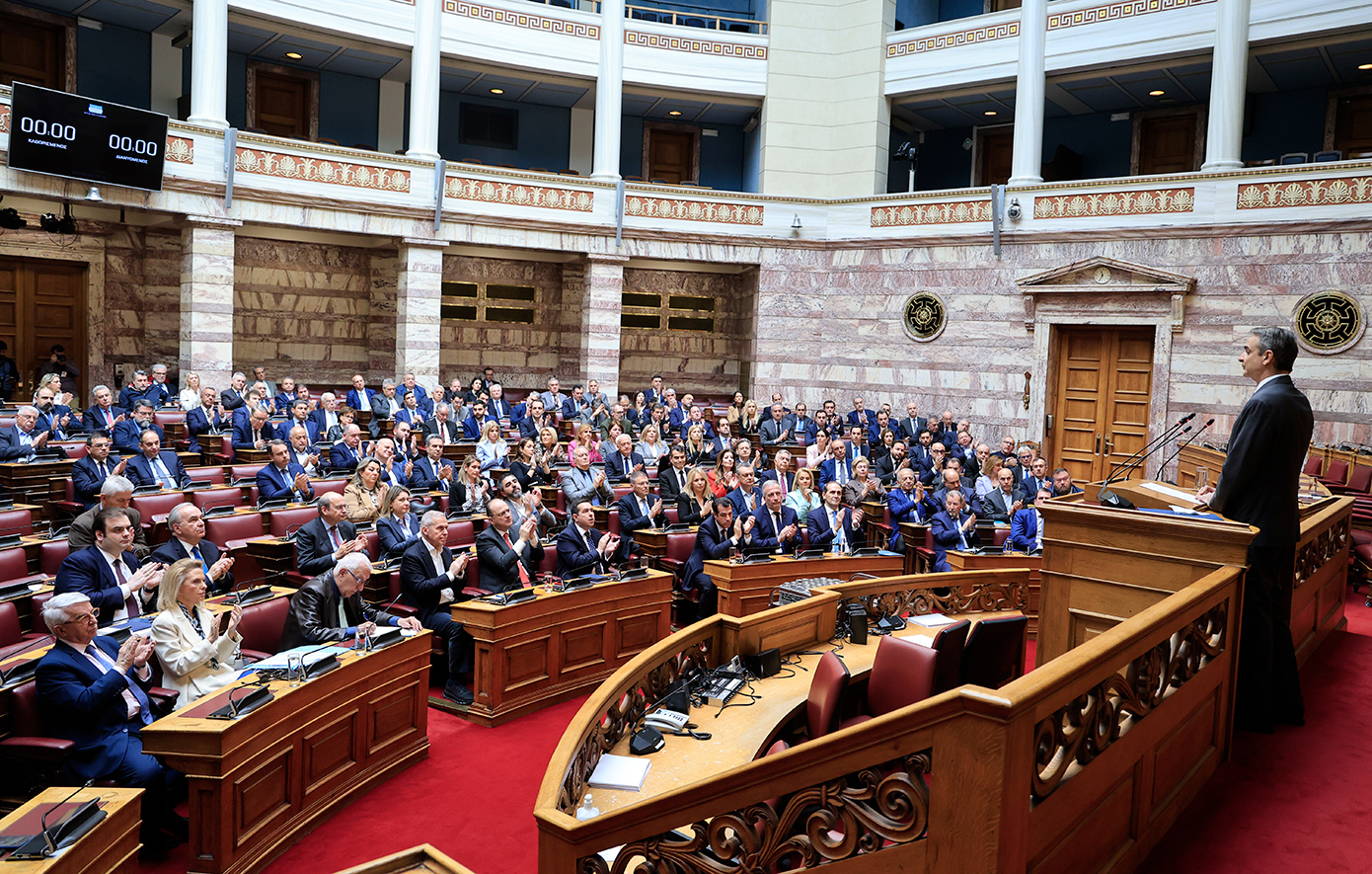The aim is to identify structural weaknesses and to ensure that real beneficiaries receive the aid
The majority MPs submitted by 60 MPs ND for conducting an examination committee for the case of OPECEPE and the “complete investigation of the Organization’s timeless problems”. The announcement was made by the Vice President of the House G. Georgantas.
The ND proposal provides for everything to be investigated for the $ 2.7 billion fines, the VAT checks, the “technical solution” and the consultants. The purpose of the proposal is to identify structural weaknesses and to ensure that real beneficiaries receive the aid.
At the same time, it provides for checks at 7 key points of OPECEPE’s operation and overall of the agricultural subsidy system.
The New Democracy’s proposal, submitted to Parliament, signed by the required number of 60 Members, referring to the history of the establishment of the Payment and Control of Community Aid and Guarantee Aid (OPEKE), insists on the timeless problem of agricultural fines for the timeless. Since 1996 the “account” has risen to 2.7 billion euros.
The ND rejects the opposition’s allegations of “danger of limitation”, stressing that “the constitutional review of 2019 has abolished the special depreciation deadline for the offenses of members of the government and the deputy ministers and the relevant constitutional provision applies directly”.
The ruling party’s proposal makes special reference to the “technical solution” and how this mechanism was used by savvy to get illegal aid while highlighting the change made to Syriza for animal -free pasture subsidies.
In relation to the criminal case, it is stated that the content of the talks appear to arise evidence of extensive corruption within the Agency, with continuous talks of high -ranking OPEKEPE officials with each other, with powerful farmers and those who exploit centers.
Regarding the subject of the examination, it is emphasized that the Commission must investigate all the issues that have arisen regarding the operation of OPECEPE, with the aim of highlighting any responsibilities and restoring the credibility of the Payment System of Agricultural Aid to be an effective and fair mechanism for all producers.
This direction is required, inter alia:
– First, to clarify the range of pathogens in OPEKEPE.
– Secondly, to examine why the so -called “technical solution” was chosen and remained in force for a significant period of time to determine the aid to breeders in combination with the delay in implementing grazing plans.
– Third, to investigate how new digital tools, forestry and land registry are utilized.
– Fourth, to examine the actions of the OPEKEPE administrations and political leaderships of the Ministry responsible for dealing with these pathogens, the operation of an effective internal control system and the transmission of fraud cases to the competent judicial authorities.
– Fifth, check who requested and performed cross -checks, how many such checks were made and what was their effect and their duration, as well as what was the system for selecting checks and whether they were consistently applied.
– Sixth, to examine OPEKEPE’s relationship with the technical adviser and the causes of that relationship, the actions taken or not done to be able to operate with greater self -sufficiency as well as the existence of financial or other interests claiming to participate in the operation of OPEKEPE.
– Seventh, to investigate the reasons for the imposition of OPECEPE.
The $ 2.7 billion fines imposed since 1996 the proposal is characterized that “from the amount and frequency of sanctions with different governments and administrations, it becomes clear that a thorough research is required to highlight systemic and structural failures around the operation of OPEKEPE”.
The ND points out that the mandate received since 2019 by all the ministers of rural development and food from the prime minister was to institutionally shield the state against irregularities and to make all the necessary changes. The message of zero tolerance was reflected in the intensification of checks on VAT IDs to identify illegal payments that have led thousands of cases to the law enforcement authorities or the courtrooms. Overall, more than 5,200 natural persons and legal entities are controlled, and in many cases involved are experiencing persecution or their cases are in the audience.
According to the ND proposal, a key issue remains the restoration of the credibility of the agricultural aid payment system to constitute an effective and fair mechanism for all producers in the country.
